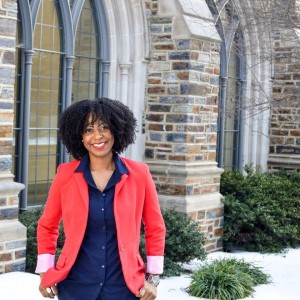By Cynthia Jacko

“A woman will never step foot in this pulpit! I don’t care what other churches are doing. I haven’t found a woman yet called to preach in the Bible, and if it’s not in the Bible, it won’t happen in my church!”
Shortly after this sidebar in a small Baptist church pastor’s sermon, affirming echoes of “Amen! Preach, Pastor,” reverberated in the sanctuary. Although it would be a year before I would hear God’s call for me to preach, the words of this seemingly angry pastor roared through the church and left me with a cold feeling of shame. This pastor was not the first I heard to publicly denounce women clergy. It was a long-standing widespread belief, particularly within the Baptist tradition in which I grew up.
Several years later while pursuing my Master’s degree in Counseling, I would share my calling to preach with the pastor of a church where I served as Assistant Minister of Music. With my history of ecclesial sexist doctrine, I was seeking a safe space to share my struggles in answering the call. Instead, I was further subjected to ecclesial violence with encouragement to “stay in my place.”
Unfortunately, I have heard more of these poisoning doctrinal beliefs disseminated in sermons and teachings than I wish I would have. For, these were the voices that resounded in my head while I attempted to convince God that He’d made a mistake in calling me to preach. Women do not do such things; my pastor said so. However, the more I suppressed the call, the more grieved my spirit became.
Thankfully, I surrendered to God’s pressing call and entered seminary anyhow. There, I have been blessed with a community of professors, preachers, and advisors who have been supportive and prayerful with and for me as I continue to pursue God’s will for my life.
That is my testimony of perseverance. Yet, I wonder about the many women who have developed spiritual sepsis from aborted purposes performed by the hands of men who deny women space to operate in their gifts. As I do the work of silencing the voices of the naysayers in my head, I think about the poison ecclesial patriarchy has intravenously administered through Biblical periscopes taken out of their historical context and used to silence the voices of my fellow sisters in ministry.
Today, numerous pulpits across various faith traditions continue to lack the ministerial voice and presence of women. Excluding them denies the significant contributions of leading foremothers within the pages of the Bible. Mary, the mother of Jesus, is one of them. God sought a body to place The Word in and God chose a vessel in the form of woman. God’s selection of Mary is relational to the uniqueness of the woman preacher.
The woman is able to bring forth the Word unlike any way that a man preacher can. It does not mean her gifting to preach is better than a man’s but rather, it is equal and distinct to her body. “Location inside of a body affects how we read or preach a text; the body affects how we do the work,” says Dr. Amy McCullough, theologian and pastor of Grace United Methodist Church (2016). The woman preacher carries the text differently and thus, proclaims it from a perspective unique to both her sex and gender.
I once heard a quote restated at a retreat for the woman seminarian that has been life-giving and affirming. In fact, I have passed it on to many of my women seminarian friends whose gifts have been rejected because of the wrapping. It is this: “If the woman can carry the Word in her womb, why can’t she carry it in her mouth?” For a season, Mary’s body incubated the Word. The Word was connected to her, affecting and changing her own body. When her body could hold what was growing on the inside of it no longer, she reached a point where she had to deliver.
Out of that deliverance came salvation to a dark and broken world. Similarly, when the preacher woman declares the Word, she is birthing a thing that has the ability to set people free. She experiences great relief and joy through the delivery but feels much turmoil and agony when unable to push. In essence, the people’s liberation is bound up in hers.
Unfortunately, it is not enough for women to accept and embrace their call if ecclesial structures continue to espouse male-exclusive leadership and direct women to other “gender-appropriate” spaces. Those who have privileged positions must use their platforms to admit the miseducation of the church regarding female clergy, dismantle boundaries that deny her the right to pursue God’s plan for her life, and be intentional in creating equal spaces for current and incoming clergy women to minister and grow.
There is an urgent call for brothers to join hands with their sisters as a reconciled body that all may have a seat at the table and the power of God may be shown in the world more excellently.
Cynthia S. Jacko, a native of Lake Charles, La., is a third-year student at Duke Divinity School. With intentions to pursue chaplaincy in palliative care, in addition to congregational ministry, Cynthia served as a Pastoral Intern at Yates Baptist Church and continues to serve at Urban Ministries of Wake County. She is also the Director of Music for the Duke Divinity School Gospel Choir and Assistant Minister of Music at Poplar Springs Christian Church.
Note: The views expressed here in columns and commentaries are solely those of the authors.
Interested in writing for CBF at Patheos? Submit your column idea to CBF Communications Director Aaron Weaver at [email protected].










